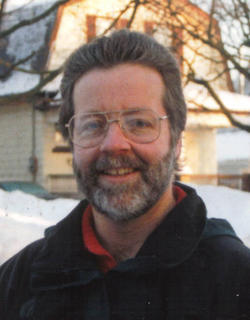 The grand-daddy of all galactic royal rumbles!
The grand-daddy of all galactic royal rumbles!Two civilizations, the Arisians and the Eddorians, old beyond imagining and evolved to the point where their mental skills alone command energy and forces that are unthinkable for lesser species such as humans from our beloved Earth or even the reptilian Nevians, battle for dominance of the universe. In "Triplanetary", Doc Smith has left no room for doubt concerning the identity of the "good guys" versus the "bad guys". The Eddorians, quintessentially and unabashedly evil, have set themselves a modest but extraordinarily clear mission -
"to tear down and destroy every bulwark of what the weak and spineless adherents of Civilization consider the finest things in life - love, truth, honor, loyalty, purity, altruism, decency and so on."
The Arisians, of course, represent all of those virtues which the Eddorians are so bent on removing from the Universe.
"Triplanetary" is the grand-daddy of all space opera adventure novels - a non-stop, red hot action-oriented, plot driven space battle that is a positively orgasmic geekfest of techno-babble on steroids. One need only read a single chapter to envision the origins of the special effects in modern movie and television versions of Star Trek, Babylon 5, Andromeda or Battlestar Galactica. If you like your battles hot, your villains ugly and nasty, and your heroes manly (how could a hunk named "Conway Costigan" be anything but a two-fisted, steely-eyed man's man?), then you'll probably enjoy "Triplanetary"!
On this basis alone, "Triplanetary" is probably worth reading as the acknowledged progenitor of every space war novel that was ever written. One could even make a very strong case that Steven Spielberg, Gene Roddenberry and the entire world of special effects in visual media owe much to Smith's fertile imagination!
But does "Triplanetary" deserve membership in a library of what we now call science fiction classics? I think not. There is so much wrong with "Triplanetary" on the literary side, it's really quite difficult to know where to start.
Other than cartoonish heroic stereotypes, character development is negligible. Dialogue is stilted and the romantic interludes, in particular, are so trite as to be laughable. The raging purple prose is so positively brimful of superlatives and absolutes that one wonders how any progress was made at all, any goal achieved or any enemy defeated - barriers were impassable, obstacles were insurmountable, chances of success were only one in numberless millions, beams of destruction were relentless, forces were cataclysmic, objects were immovable, tractor beams were irresistible - well, it just got tiresome because this was the nature of the entire novel. Science, even as it was known at the time, was effectively ignored and technology in the novel crossed the line from imaginative into purely fantasy.
Recommended as a fast, enjoyable read from the standpoint of understanding the roots and growth of science fiction as a genre. But the novel has not stood the test of time and is weak gruel indeed compared to many of its contemporaries.


No comments:
Post a Comment